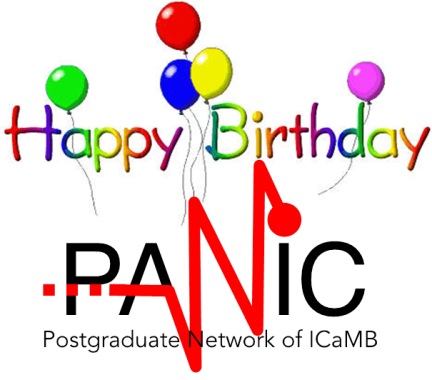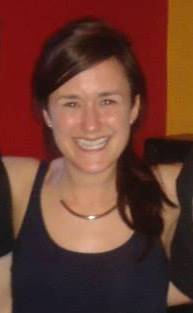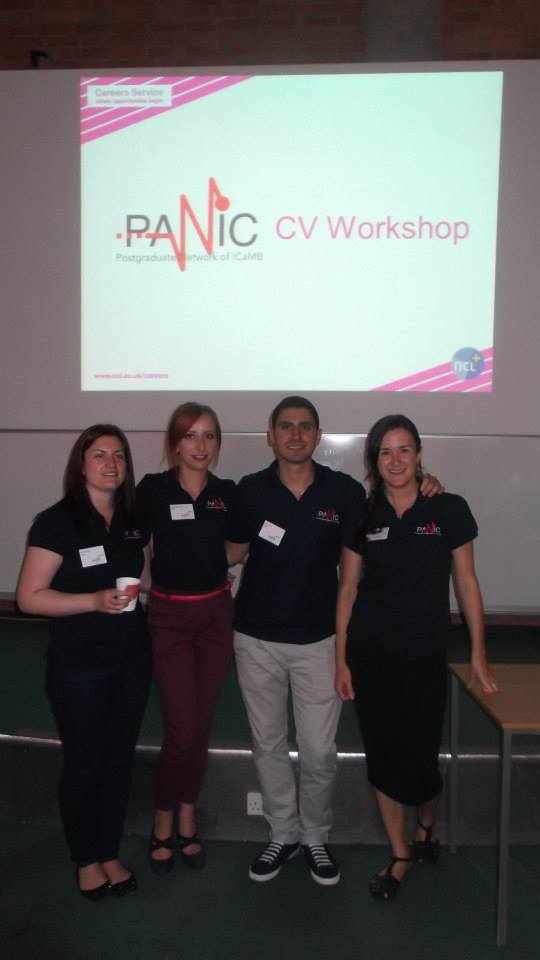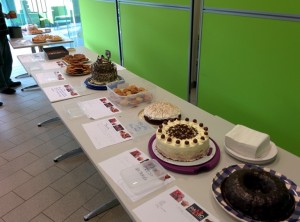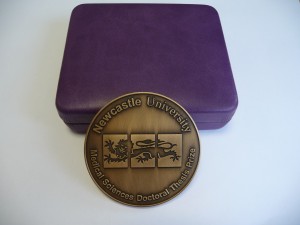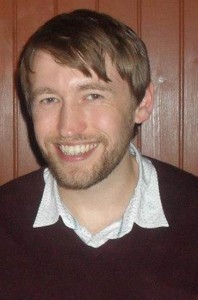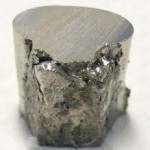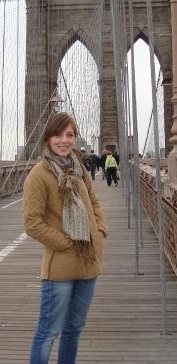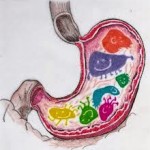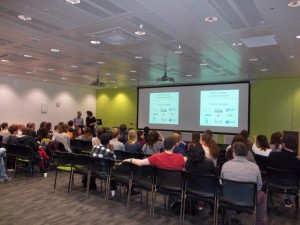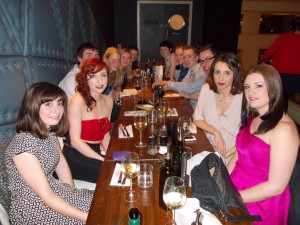ICaMB’s postgraduate student association (PAN!C) celebrated it’s 2nd birthday in February. Thank you to all 40+ of the ICaMB postgraduate students who came and enjoyed our night of celebrations!
Yep, if you’re an ICaMB postgraduate student, I’m the one who clogs up your inbox with emails about yet another PAN!C activity. The past few years, since Claire Whitworth and Kerrie Brusby began the ICaMB postgraduate association, have been an amazing whirlwind. To celebrate PAN!C’s birthday I thought I’d share my highlights with you.
In February 2013, PAN!C applied for and won a University Innovation Grant, and were invited to celebrate with the Vice Chancellor. These funds have enabled PAN!C to host numerous events, both academic and social, for ICaMB’s PhD student community. In November 2013 we hosted our careers symposium. Of course, we’ve all been given the usual, generic career options for people with PhDs, but that wasn’t enough for PAN!C. We wanted our students to have the opportunity to hear about careers they perhaps had not thought of, and provide the chance to meet professionals in these areas…. We even had an interesting insight into running a pole dancing business! In 2014, PAN!C hosted a CV workshop, with experts providing information on how to improve and tailor your CV to a variety of sectors. We had 12 speakers, and over 60 students attended the day.
Both the Careers Symposium and CV workshop received extremely positive feedback, from students and speakers alike, with 100% of responders stating they’d recommend the workshops. It’s worth noting that, while organising these events, I made contacts with people from industry, teaching, law, business and recruitment, all of whom I’m still in touch with. PAN!C has provided me with a fantastic opportunity to network with my peers, and gain skills in team work, grant applications, leadership and communication.
On the social side, PAN!C has always strived to bring together the many groups within ICaMB. Together we’ve conquered our fears and climbed to dizzying heights at the Newcastle Climbing Centre, skated on ice at the Centre for Life in a somewhat Bambi fashion, hit a pin or 2 whilst bowling at MFA Bowl and became Quiz Champions of FMS!
Another highlight was the PAN!C Bake Off, where I almost fell into a sugar induced coma!….. mmmmm cake. And along the way we raised a massive £361.56 for charity (which was split between Macmillan, Doctors without Borders and Age UK).
Since forming, the PAN!C committee has had 10 members, and I’d personally like to thank every one of them for contributing and making this association such a fantastic and fun thing to be a part of. I’d also like to thank the ICaMB postgraduate students too. We’re a student led committee for the students and without you we’re nothing!
I’m nearing the end of my stint at Newcastle University, so it’s time to pass the PAN!C reigns over. It’s something that has improved my time management and helped me to focus on my PhD work. I hope you too realise the opportunity that PAN!C offers. You can give as little or as much time as you like, involve yourself with conference organising or just attend the socials. So, get involved and let’s keep the party going!
If you want any further information or just to chat about PAN!C, please don’t hesitate to contact me: b.m.lawry@ncl.ac.uk.

